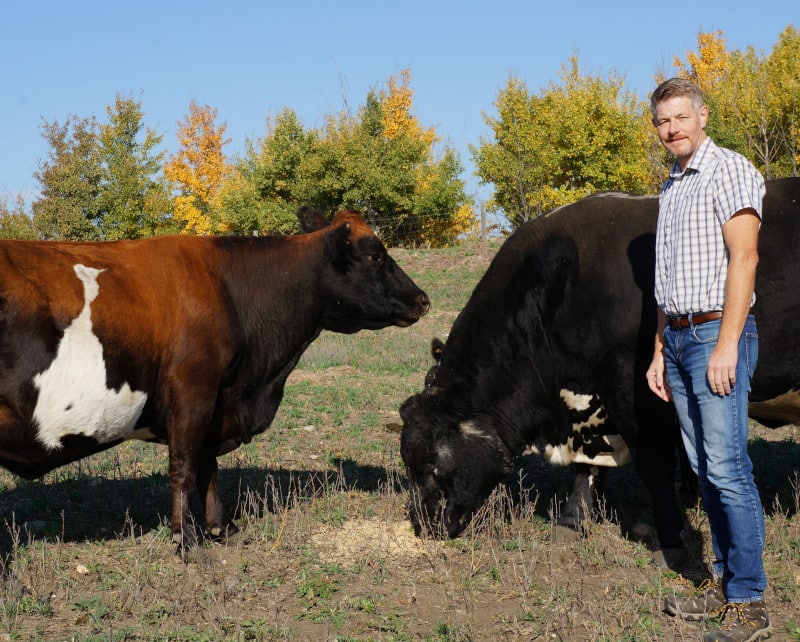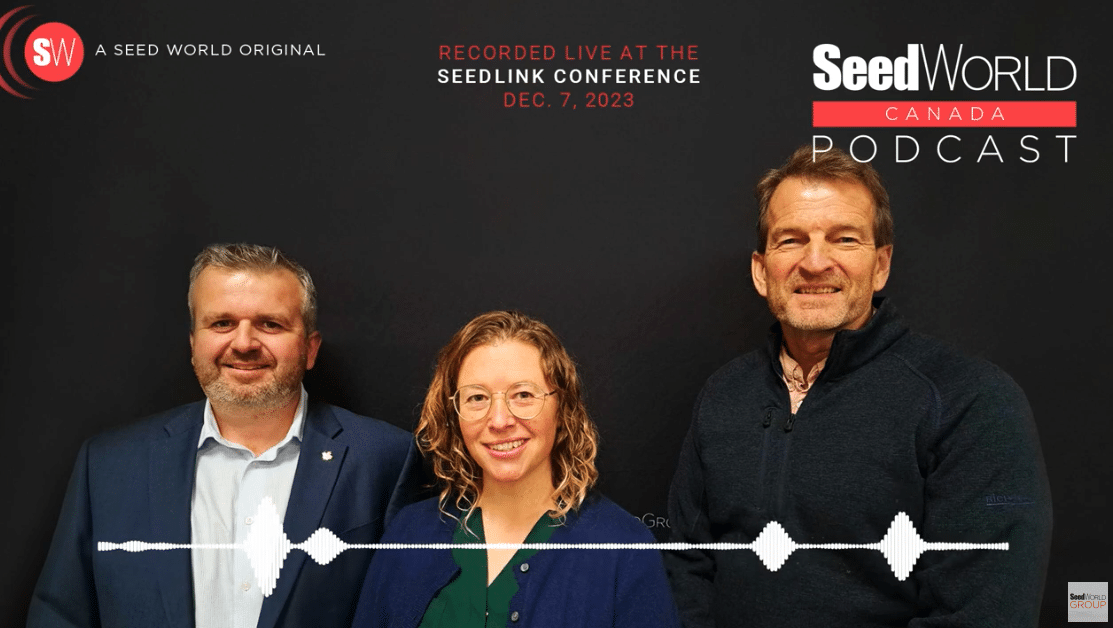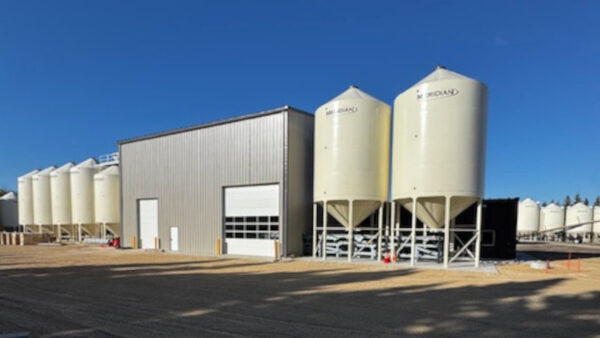The executive director of the Saskatchewan Seed Growers’ Association comes from a research background that didn’t focus on seed. Turns out, it’s an asset in his new role.
Chris Barker’s resume in the world of research is extensive. Twelve years working in livestock vaccine research. Over a decade at Genome Prairie, five of those years as chief scientific officer. Another four years as research and business director for the Global Institute for Food Security.
Now, this lover of technology and how it can be used to improve the genome is the executive director of the Saskatchewan Seed Growers’ Association (SaskSeed). We sat down with Barker to find out why he wanted to bring his expertise to the seed industry, and his vision for the voice of pedigreed seed in Saskatchewan.
Q: Chris, you’ve had a diverse background, including work in vaccine design and academic research. What made you want to become the executive director for SaskSeed?
A: It’s been an evolution for me. As the executive director of SaskSeed, I see it as a continuation of my journey, where I can have a broader impact on the industry. I’ve always been fascinated by the impact of research on agriculture, and working with plant breeders was a significant part of my career. Being in this role allows me to bridge the gap between plant breeding and seed production, contributing to the industry’s growth and innovation.
Q: Your background includes vaccine design for livestock. How has this experience influenced your perspective on agriculture, especially in the seed industry?
A: Vaccine design for livestock was my introduction to the world of agriculture research. It was exciting to see how science and technology could be harnessed to improve agricultural practices. While I shifted more towards crop research in my career, that initial exposure to innovative technologies has shaped my view of the agricultural sector. It made me appreciate the role of technology and innovation in agriculture, which I believe is equally applicable to the seed industry. Just as we work to improve the health and productivity of livestock, we aim to enhance crop production through superior seed technologies.
Q: One of the challenges in the seed industry is encouraging the use of certified seed. How do you plan to address this issue and promote the value of certified seed among farmers?
A: Demonstrating the role that certified seed growers play in moving new crop varieties and technologies from research and breeding programs into wide adoption by producers is crucial. The use of the newest crop varieties ensures they have the most productive and well adapted crop for a changing environment and market. That benefits them and the entire ag sector in Saskatchewan. Certified seed growers provide access to those varieties as well as vital local knowledge of variety performance. We don’t want to stop the use of farm saved seed but we want to encourage farmers to adopt newer varieties that benefit their bottom line and the whole ag sector in Saskatchewan. It’s about making the case that using certified seed to access those newer varieties ultimately benefits farmers by improving their yields and the quality of their crops. To encourage adoption, the crop insurance industry also has a role to play as certified seed of the newest varieties is a form of biological crop insurance protecting yield in the face of changing stresses in the field. Additionally, grain handlers and millers will play a role as export markets and consumers demand greater transparency when it comes to their food.
Q: In the context of seed regulatory modernization and the increasing use of new technologies like gene editing, what are your priorities as executive director?
A: Firstly, ensuring the efficient operation of the organization and delivering value to our members remains a top priority. However, we also need to adapt to the changing landscape of agriculture, especially in terms of technology. The seed industry is evolving rapidly, with advancements in gene editing and other technologies. My goal is to help SaskSeed members embrace these innovations and promote their responsible use. We’ll focus on demonstrating the value of new variety adoption through certified seed to all industry stakeholders. Additionally, we’ll work on advocating for supportive policies and regulations that facilitate the responsible adoption of new technologies in seed production.
Q: There’s a growing need to engage consumers and create awareness about the value of certified seed. How do you plan to tackle this challenge and make consumers more aware of the importance of seed quality in their food products?
A: While engaging consumers directly may be challenging, we can focus on creating awareness among farmers, grain handlers, millers, and food processors. By highlighting the advantages of using the most advanced crop varieties through certified seed, such as improved crop yield, consistency and quality, we can make a strong case to these industry players. Consumers often make choices based on product quality, health, and sustainability. If the industry promotes new variety adoption through certified seed the entire supply chain will benefit from higher stable yields that translate into cheaper high-quality food products, consumers will benefit. It’s about demonstrating the value proposition of certified seed throughout the supply chain and making it an industry standard for quality assurance.












